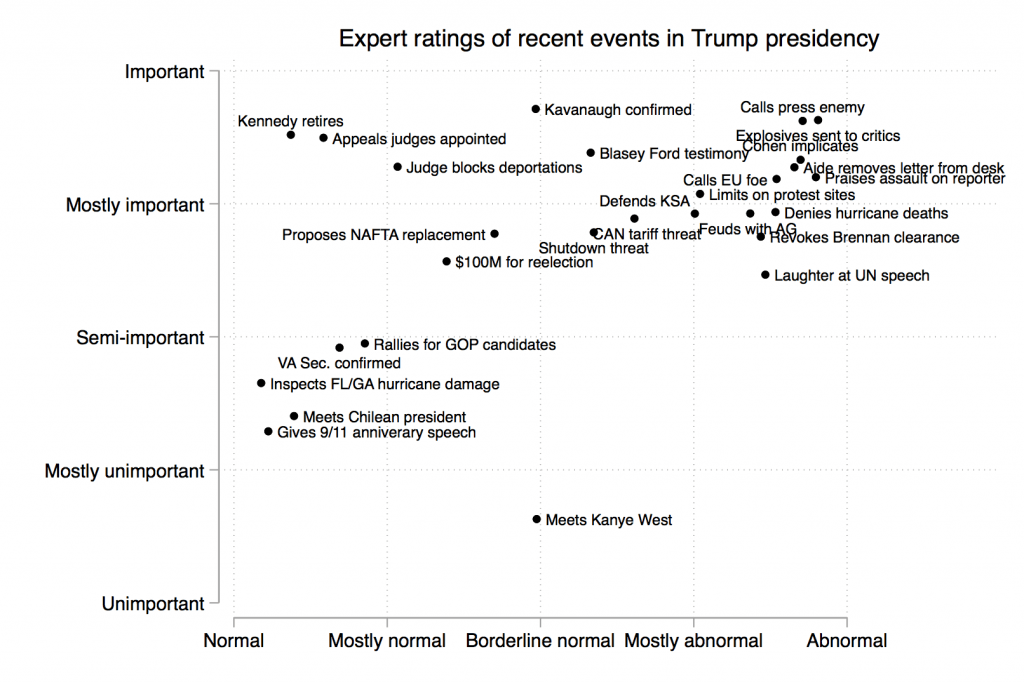About Bright Line Watch
Is democracy eroding in the United States? If so, how exactly would we know? What are the “bright lines” or thresholds that must be violated for scholars and citizens to agree that democracy is in danger?
To answer these questions, a multi-university initiative called Bright Line Watch was established in late 2016 to monitor democratic practices, their resilience, and potential threats. It is housed at the Chicago Center on Democracy, and is collaboratively run by political scientists at the University of Chicago, Dartmouth College, the University of Michigan, and the University of Rochester.
Our Surveys
Bright Line Watch’s flagstone activity is a set of quarterly surveys of political science experts and the general American public that provide a fine-grained picture of the performance of U.S. democracy over time. Since February 2017, we have completed regular waves of surveys, which ask respondents about their views on the importance and U.S. performance on 27 principles of democratic governance.
Each survey wave has the full data and a report published at brightlinewatch.org.
We plan to continue to several survey waves per year, modifying certain sections each time to provide a more nuanced understanding of the respondents’ views.

Media Coverage
Bright Line Watch’s work has been covered in outlets such as The New York Times, The Washington Post, The Wall Street Journal, The Associated Press, The New Yorker, The Atlantic, Vox, Politico, The Boston Globe, and Pacific Standard, among others. Examples include:
-
Democracy is on the brink of disaster. For voters, it’s politics as usual (The Washington Post 1/7/2022)
-
A year after Jan. 6, millions of Americans support violence (The New York Times 1/5/2022)
-
Why Jan. 6th was not a turning point (FiveThirtyEight Politics 1/4/2022)
-
(The Washington Post 12/23/2021)
-
(The Washington Post 12/17/2021)
-
(Bloomberg 12/17/2021)
Working together to strengthen democracy
Bright Line Watch is not alone in grappling with questions about democratic performance. Day after day, prominent scholars and journalists have come forward to sound alarms about the status of democracy here and elsewhere. Understanding how and why democracies thrive or fail has never been more pressing.
However, most of the work to date has been conducted by individual scholars. Bright Line Watch mobilizes these voices into a collective brain trust that can help provide sustained, informed, and non-partisan reflection and debate about the state of democracy in the United States.
If complacency threatens democracy, so too does the failure to coordinate its protection. As scholars and citizens, we believe it is our obligation to draw on our collective expertise to monitor the health of democratic institutions. We must take what we know about democratic failures abroad and alert the public about threats to our most basic institutions—free elections, free press, due process, and the rule of law—at home.